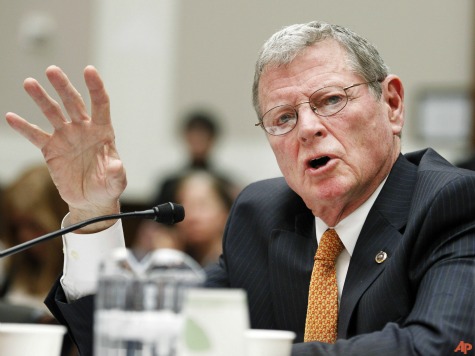Under a Republican-controlled Congress there will be changes in Washington, DC—with energy policy front and center.
The past six years have seen taxpayer dollars poured into green-energy projects that have embarrassed the administration and promoted teppan-style renewables that chop-up and fry unsuspecting birds midflight even as they hurt the economy. Meanwhile, Republicans have touted the job creation and economic impacts available from tapping America’s abundant fossil-fuel resources.
Voters made their preference clear: Republicans won more seats, and with bigger majorities, than anyone predicted. What energy policies should we watch for?
Keystone pipeline
Post-election, the Keystone pipeline has suddenly jumped to the front of the lame-duck-legislation line with a vote finally scheduled. Months ago, Senators Mary Landrieu (D-LA) and John Hoeven (R-ND), along with 54 others (including 11 Democrats), reintroduced legislation to authorize building the Keystone pipeline—but Senate Majority Leader Harry Reid (D-NV) blocked the popular bill by repeatedly denying requests to take it up. The House has already approved eight previous Keystone bills and quickly passed an identical bill sponsored by Landrieu’s election opponent, Rep. Bill Cassidy (R-LA).
The question remains whether the White House will approve the bill, though spokesman Josh Earnest hinted at an Obama veto. A veto would further anger his union supporters. With many Democrats already on board and a push for more support from union leadership, the new Congress may be able to pass it again—this time with a veto-proof majority.
Federal lands
President Obama likes to brag about the increased U.S. production of oil and gas. In his post-election news conference, he stated: “Our dependence on foreign oil is down.” While the statement is true, it falsely implies that he had something to do with that.
Reality is, as a Congressional Research Service report makes clear, while oil production has increased 61 percent on state and private lands, it has decreased 6 percent on federal land where the administration has authority. Additionally, the report points out, applications to drill on federal lands take nearly twice as long to process under the Obama administration than they did previously.
One prediction envisions drilling in the Arctic National Wildlife Refuge becoming a part of the Republican Party’s vision of energy independence—something Alaska’s senior Senator Lisa Murkowski (R-AK) has argued for.
Oil exports
We already hear a lot of talk about lifting the ban on oil exports put into place in response to the 1970s Arab oil embargo.
With the Republicans in charge come January, Senator Lisa Murkowski will become the Chairman of the Energy and Natural Resources Committee. She is expected to start by “holding hearings, pressuring Obama administration officials, and testing the level of support from party leadership” for lifting the export ban.
Environmental Protection Agency (EPA)
President Obama’s Clean Power Plan (CPP) has widespread opposition within the Republican Party. Even coal-state Democrats, such as Senator Joe Manchin (D-WV), have concerns with the CPP.
The CPP, plus the many other regulations—such as those coming on ozone and methane—have many lawmakers concerned about the EPA’s impact on grid reliability and the economy. President Obama is not likely to sign any legislation designed to rein in his personal priorities, but Republicans can make changes in EPA appropriations.
The Endangered Species Act (ESA)
The ESA direly needs revision, updating or outright repeal as has more recently been used as a funding tool for environmental groups and a way for them to block economic activity, such as oil-and-gas extraction, and ranching, farming, and mining.
Earlier this year, a group of 13 GOP lawmakers released a report, which called for an ESA overhaul. While repeal is unlikely, this may be the time to introduce legislation that would reform the ESA to curtail litigation from wildlife advocates and give states more authority—two ideas that were brought forth in the report.
Climate Change
The Environment and Public Works Committee (EPW) Chairmanship will change from one of the biggest supporters of Obama’s climate change agenda (Senator Barbara Boxer [D-CA]) to the biggest opponent of his policies (Senator Jim Inhofe [R-OK]). On election night, Inhofe stated: “I am looking forward to taking back the environment committee”—a role that, according to Environment & Energy Publishing: “Already has greens cringing.”
This reversal of attitude in climate change policies already shows in the response to the president’s newly announced pact with China to reduce carbon dioxide emissions and his promised $3 billion contribution to a U.N. climate fund designed to help poor counties deal with potential impacts of climate change. Reports now declare: “Climate change compromises may be easier with China than Congress.”
***
It is going to be an interesting two years. If the Republican policies turn the economy around—offering a sharp contrast to the stagnation of the past six years, they will pave the way for victory in 2016.
The author of Energy Freedom, Marita Noon serves as the executive director for Energy Makes America Great Inc. and the companion educational organization, the Citizens’ Alliance for Responsible Energy (CARE). She hosts a weekly radio program: America’s Voice for Energy—which expands on the content of her weekly column.

COMMENTS
Please let us know if you're having issues with commenting.